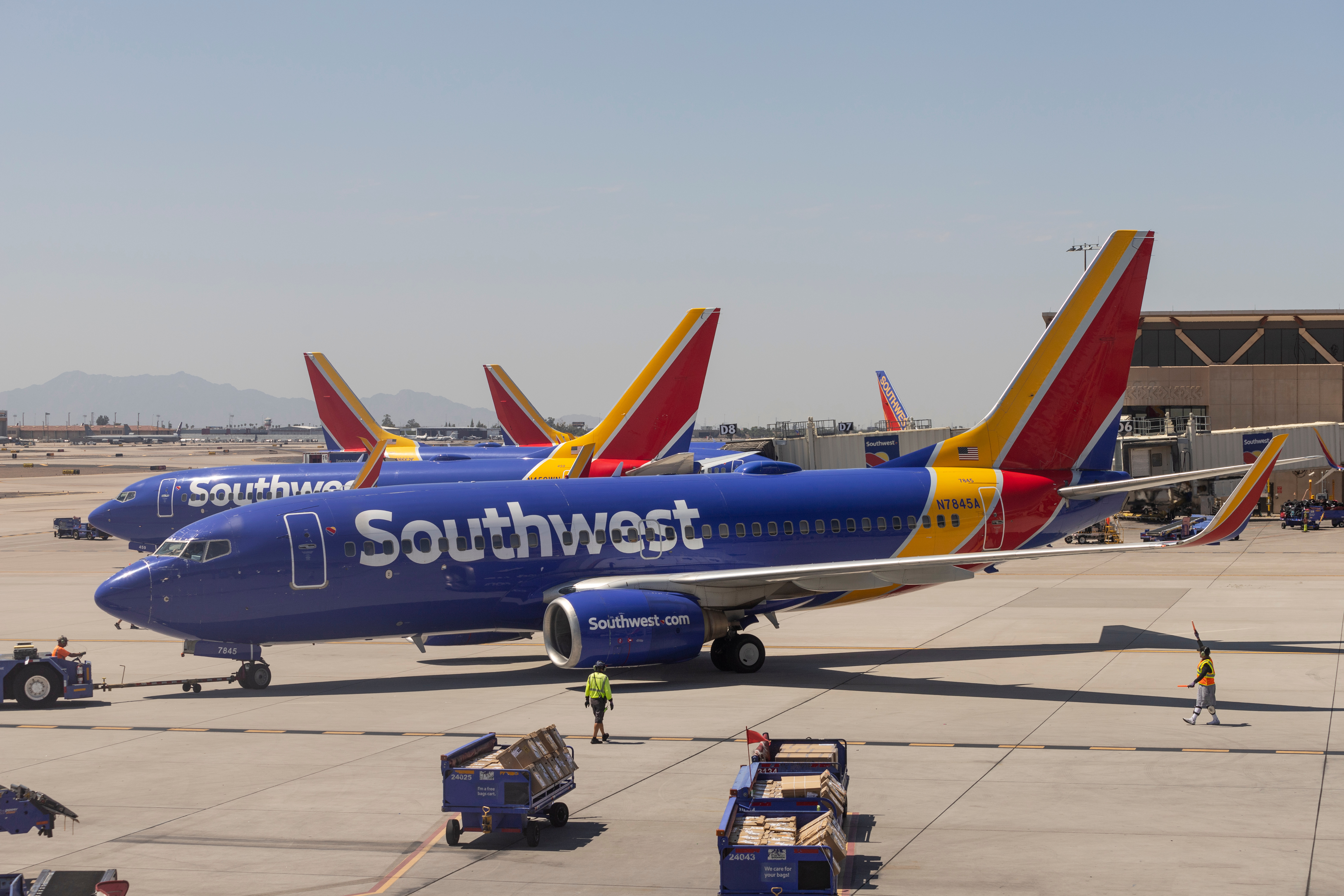
WASHINGTON, D.C. — Turbulence isn’t only in the skies this week. With the U.S. government shutdown creeping into another pay cycle for federal aviation employees, flight disruptions are rippling through airports nationwide, and traveler patience is wearing thin in Washington and beyond.
Southwest pilots sound the alarm on Capitol Hill
On behalf of more than 11,000 cockpit crew members, the Southwest Airlines Pilots Association (SWAPA) has delivered a pointed message to lawmakers. “Considering the strain on our nation’s aviation system, SWAPA strongly urges Congress to pass a clean Continuing Resolution,” Captain Jody Reven said in a statement. The union was founded in 1978 with 112 members and now represents pilots based in Atlanta, Nashville, Baltimore, Dallas Love Field, Denver, Houston Hobby, Las Vegas, Los Angeles, Orlando, Chicago Midway, Oakland and Phoenix. SWAPA argues that air-traffic controllers and Transportation Security Administration officers — many of whom are currently working without pay — can’t be expected to keep pace with the year’s busiest travel stretch under prolonged financial and staffing stress.
Delay figures climb as holiday season nears
• Sunday: Southwest and American Airlines combined for 3,309 flight disruptions, according to FlightAware.
• Same day: Southwest alone logged 2,089 delays, affecting 47 percent of its schedule and canceling 29 flights.
• Monday: The Dallas-based carrier again led the nation, ending the day with 1,535 delays and 23 cancellations.
• Tuesday, Oct. 28, 2025 (early afternoon): Southwest already counted 592 delays. Close behind were China Southern (375), China Eastern (294), Air New Zealand (237) and Air China (223). American tallied 208 delays and 23 cancellations by early Tuesday, while United reported 163 delays. Delta Air Lines fared better with 135 delays during the same window.
Why the shutdown bites so hard
Flight paths depend on an intricate choreography between air-traffic control towers, airline operations centers and airport security checkpoints. The Federal Aviation Administration, now operating on emergency funds, has paused hiring and training for new controllers — problematic for a system already understaffed even before the government impasse. TSA officers are likewise showing up unpaid, and employee shortages have the potential to stretch screening lines just as Thanksgiving crowds arrive.
Delta keeps its cool — for now
Delta Air Lines chief executive Ed Bastian told Reuters the shutdown’s impact on his carrier remains “small,” estimating costs at “less than $1 million a day.” Still, he warned that adequate TSA staffing is the “more obvious concern.” Delta is also contending with the U.S. Department of Transportation’s decision to end its nine-year joint venture with Aeromexico on Jan. 1, 2026.
What travelers should know before heading to the airport
- Check flight status constantly. Numbers are changing by the hour; sign up for airline text alerts and use real-time apps like FlightAware.
- Pad your schedule. With controllers stretched and security lines in flux, arrive at least three hours ahead for domestic flights and four for international departures.
- Have a Plan B. If your itinerary involves a tight connection, call your airline now to explore re-routing options that bypass congestion points such as Chicago Midway or Dallas Love Field.
- Carry essentials. Pack medications, chargers and a day’s worth of clothing in your hand luggage in case delays snowball into overnight stays.
- Know your rights. U.S. carriers must refund you for canceled flights they cannot rebook; compensation for delays varies, so read each airline’s contract of carriage.
- Monitor the shutdown. If Congress passes even a short-term funding bill, staffing relief could arrive within days — worth considering before making drastic itinerary changes.
FAQ: Government shutdown and air travel
Why are delays spiking at Southwest?
Southwest operates a point-to-point network that relies on quick turnarounds at mostly busy secondary airports. Any bottleneck in air-traffic control leads to cascading delays throughout its system.
Are other U.S. airlines equally affected?
American and United are seeing hundreds of daily delays, but not at Southwest’s volume. Delta reports the fewest disruptions among the big four, yet still braces for longer TSA lines if the shutdown continues.
Will holiday flights be canceled?
Cancellations have been limited so far (29 on Sunday, 23 on Monday for Southwest), but if controller absenteeism increases, airlines could proactively trim schedules to avoid gridlock.
Can purchasing travel insurance help?
Policies covering “travel delay” or “missed connection” clauses may reimburse hotel and meal costs. Read exclusions carefully; government shutdowns are sometimes treated differently than weather events.
Looking ahead
Congress has yet to agree on a funding bill, and each passing day without one adds to operational risk. For travelers eyeing Thanksgiving getaways or Christmas reunions, flexibility and vigilance will be the watchwords until the federal tap is turned back on. — as Reven said in a statement.


